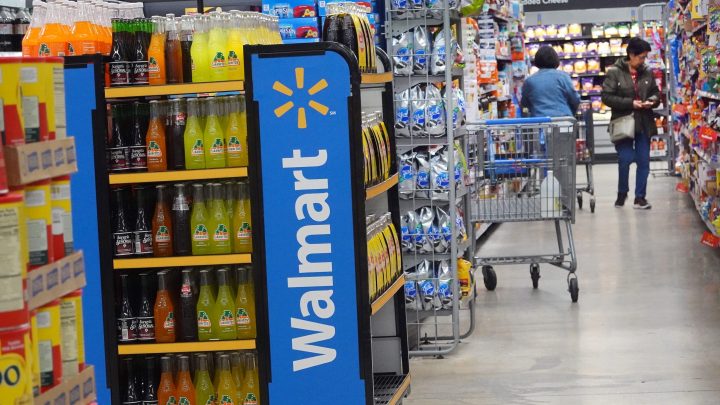
As higher-income households do more shopping at Walmart, the store is stocking fancier brands
As higher-income households do more shopping at Walmart, the store is stocking fancier brands

Lately, the growth in retail has been concentrated at the high and low end. Dollar stores have been expanding. So have luxury stores. Now, the retailers that live somewhere in the middle are trying to become more high end, too. Macy’s is going to focus on its higher priced stores, Bloomingdale’s and Bluemercury. Kohl’s is expanding its partnership with Sephora. And Walmart is now selling everything from Carbone pasta sauce to Michael Kors handbags.
Usually, when people want to go out and splurge, they’re not just buying a high-end product. They’re buying a high-end experience.
“And so if you go into a lot of luxury stores they tend to look like museums. They have objects under lights that are on display. Single versions of those products,” said Joseph Nunes, a marketing professor at the University of Southern California.
The fluorescent lit aisles of big box stores don’t scream luxury. But for certain items, consumers just don’t care. Call it the Costco effect — you buy Kirkland socks and Estee Lauder face serum at the same store.
And experience matters even less online. Why not get a nearly $4,000 tin of caviar at Walmart.com if it’s cheaper?
“These value big box stores, they really want to expand their product portfolio and that means covering more segments of consumers,” Nunes said.
With inflation, even higher earners have become price conscious. Walmart says it now has more customers from households making over $100,000.
Jessica Ramírez, a senior analyst at Jane Hali and Associates, doesn’t think appealing to these shoppers will alienate lower-income ones — if it’s done right. When it comes to Target’s collaboration with Ulta for instance, “You don’t have the Diors and the Chanels, but you do have some of Fenty,” she said.
Fenty Beauty has a slightly lower price point and appeals to younger customers.
But being sold at a big box store can affect brands. Dyson vacuums and Kerrygold Butter tend to do fine next to their less expensive competitors. But David Swartz, a senior equity analyst at Morningstar, said apparel and accessories are a different story.
“If a handbag is sold alongside very cheap handbags it’s perceived by consumers as a cheap handbag,” he said.
Perception is everything. And, Swartz said, as big box stores grow to take the place of dwindling department stores, a wider range of products is possible.
There’s a lot happening in the world. Through it all, Marketplace is here for you.
You rely on Marketplace to break down the world’s events and tell you how it affects you in a fact-based, approachable way. We rely on your financial support to keep making that possible.
Your donation today powers the independent journalism that you rely on. For just $5/month, you can help sustain Marketplace so we can keep reporting on the things that matter to you.











